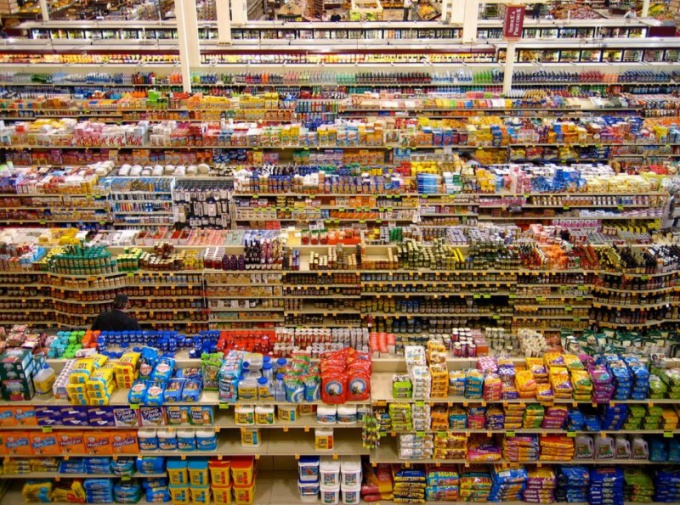The types of FMCG goods
The hallmarks of FMCG products is cheapness and speed of sale. These products are used for a limited time period, respectively, the frequency of their purchases above. The relative profit from the sale of goods of daily demand is low, but at the expense of mass, they provide sellers with a high turnover.
The definition of FMCG as "goods in high demand" is incorrect, because for some products the demand is temporarily higher, while FMCG.
Purchase of FMCG goods come in everyday, in order of reception with the stock. Among FMCG firms can be distinguished:
- hygiene products, toothpaste;
- detergents and cleaning products;
cosmetic goods;
- utensils, batteries, light bulbs;
- cigarettes, alcohol, soft drinks;
- drugs.
Such items are less susceptible to the decay of sales during the crisis periods.
Consumer goods differ from durable goods. For example, consumer electronics and appliances, typically, these products are changed once in 1-2 years. Also they should be distinguished from basic foodstuffs, including bread, milk, butter, etc.
Features of the FMCG market
The FMCG market is characterized by high level of competition, and the frequent emergence of new brands and products. The main factors supporting the competitiveness of the FMCG companies are wide range, reasonable prices, and regional coverage. To maintain its place in the market companies need to constantly rotate brands of products and bring to market new products.
The list крупнейшихFMCG-companies - Unilever, Colgate, Procter&Gamble, Henkel, Danone, Coca-Cola,Kraft, PepsiCo, Nestle, Heinz.Marketing policies of companies aimed at the target audience for the formation of the needs in the product, the constant increase in turnover, as well as securing customer loyalty to the brand.
An important factor of sales growth effective merchandising is, because in many respects the space and location of goods in a supermarket determines its sale.
All FMCG companies can be divided into several groups, depending on the number of brands in the product portfolio:
- General - represents the products from one category (e.g., Coca-Cola);
- offering 2-3 product - for example, juices and dairy (Wimm bill Dann), drinks and confectionery (Cadbury Schweppes);
- multigrocery - Procter&Gamble, Nestle, and Unilever.
The Russian FMCG market is under active development, the demand for goods of daily consumption is growing annually, the market there are always new brands and products.
